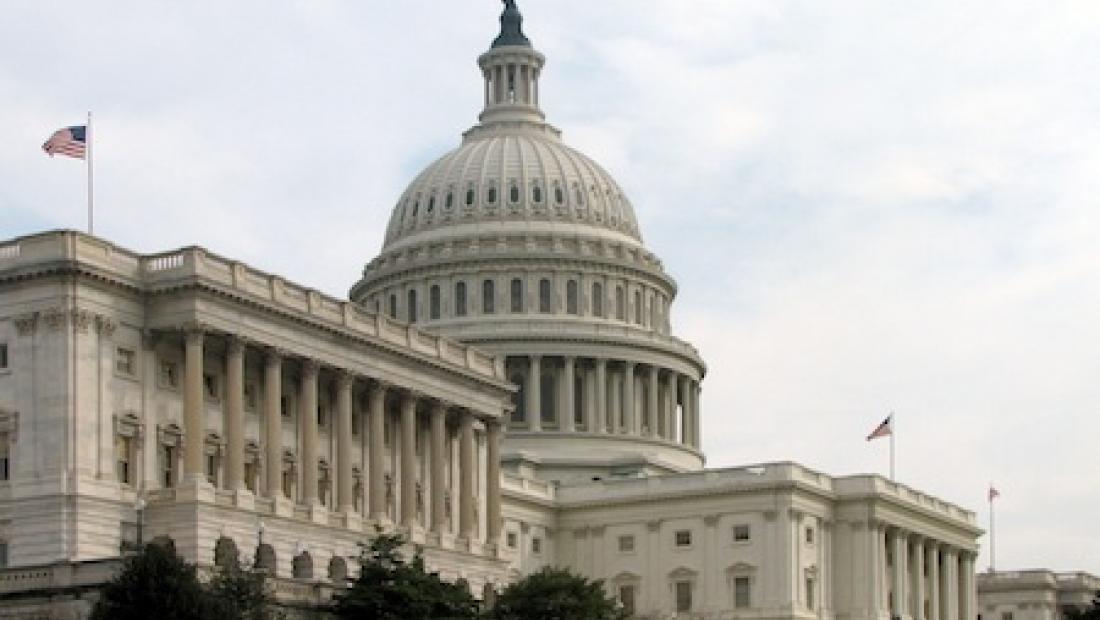Commerce Vets Starks for FCC Seat

The smarter way to stay on top of broadcasting and cable industry. Sign up below
You are now subscribed
Your newsletter sign-up was successful
Democratic FCC nominee Geoffrey Starks got a thorough vetting by the Senate Commerce Committee Wednesday (June 20), including a charge from Committee chairman John Thune (R-S.D.), who said the "hyperpartisanship of the last commission must come to an end" and called on Starks to "seek opportunities for common ground."
He suggested the model for that was the current chairman, Ajit Pai, and his "spirit of openness, transparency and collaboration" that he encouraged Starks to embrace. without regard to that example, Starks promised to work with his colleagues and the committee for the interests of the American people as consumers, taxpayers and citizens.
Hill Democrats generally have not shared that assessment of chairman Pai, despite his decisions to circulate drafts of items before votes and other process reforms.
Ranking member Sen. Bill Nelson (D-Fla.) put a fine point on that disagreement, saying the FCC under Pai had spent the last year and a half "abandoning" its statutory authority and responsibilities and turned their backs on consumers, particularly in rolling back net neutrality rules and deregulating local broadcasting, granting what he called a "special interest wish list."
Starks, currently assistant bureau chief of the FCC's Enforcement Bureau, is taking the seat of Mignon Clyburn, who exited earlier this month. Starks will get a full, five-year term since Clyburn's term expired last year.
Starks said his main priorities would be consumers and the public interest, getting "robust, affordable" broadband to all Americans through the right incentives, and advancing telemedicine--his father is a doctor. Here are some of Starks' key responses:
He would not say whether he favored a legislative fix for the FCC's net neutrality authority, only saying the FCC was a creature of Congress and would "defer to its legislative priorities." Thune said he would take that as "close to a yes" as he was going to get.
The smarter way to stay on top of broadcasting and cable industry. Sign up below
Asked if he supported coordination of broadband subsidy programs by the FCC and the Department of Agriculture's Rural Utilities Service, Starks agreed saying one hand needed to know what the other was doing.
Asked how best to advance 5G, Starks said keys were spectrum and deployment and more of both. Sounding a bipartisan note, he gave credit to both former FCC chairman Tom Wheeler and current chairman Pai for getting spectrum into the pipeline, including upcoming auctions. He also gave a nod to Commissioner Jessica Rosenworcel's call for a schedule of spectrum availability.
He was asked by Sen. Maggie Hassan (D-N.H.) about President Trump's branding of outlets and fake news and his threats against broadcast licenses. He pledged to uphold the principles of a free press against any further attacks from the Administration.
He came out strongly for the previous FCC's classification of ISPs under Title II common carrier regulations.
He said that was because they had enshrined the no blocking, no throttling, no paid prioritization rules Web users had come to expect. He said the internet economy had been laid on a foundation of openness that was best for the American people.
The committee is expected to approve Starks' nomination, which then would proceed to a full Senate vote (the House does not get to weigh in on nominations). Thune said he hoped Starks could be confirmed by the full Senate quickly, and in that spirit asked for answers to written questions from the committee by Monday, June 25.
Contributing editor John Eggerton has been an editor and/or writer on media regulation, legislation and policy for over four decades, including covering the FCC, FTC, Congress, the major media trade associations, and the federal courts. In addition to Multichannel News and Broadcasting + Cable, his work has appeared in Radio World, TV Technology, TV Fax, This Week in Consumer Electronics, Variety and the Encyclopedia Britannica.

